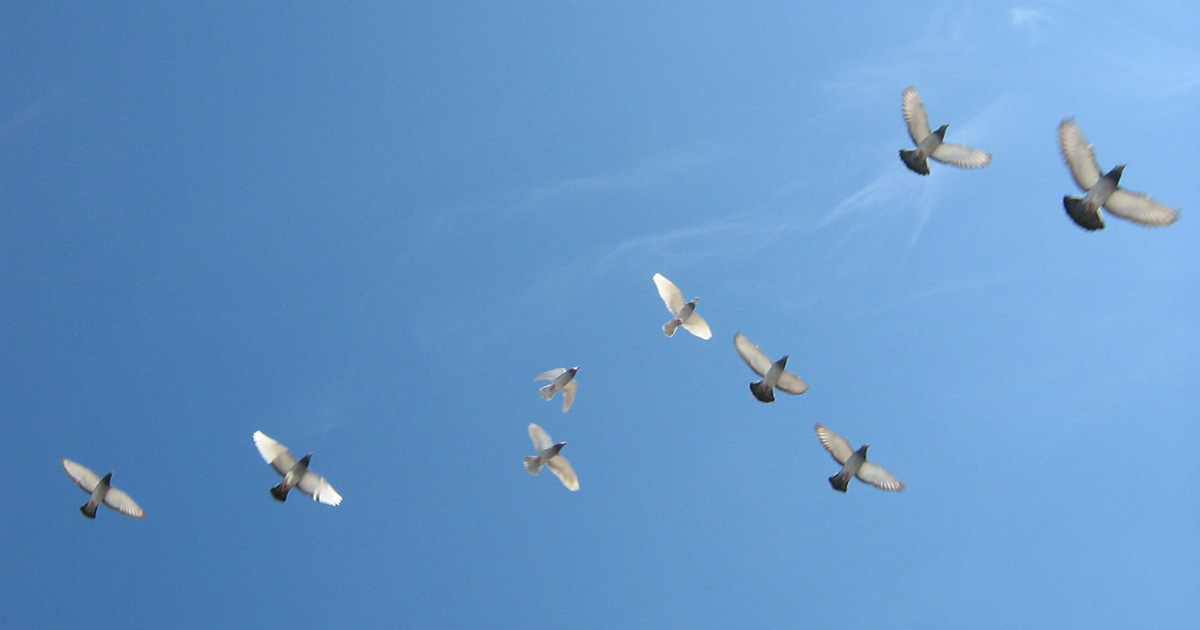
Uli Krahn: Postcards from Kings Cross
This suite of poems is part of the Long Paddock series for 78.1 Festschrift: David Brooks.
23
Start with explaining intelligence prof,
says the little pigeon.
Fortunately, Adorno has been paying
attention.
How do you find back
after going to the tasty
trees in the park?
The ibises look blank.
You sort of look, and there’s stuff
and places you know and …
says That ibis.
No, coo the pigeons.
You shut your eyes,
and then you know.
One ibis honks in disgust.
Classic pigeon logic.
Hang on says That ibis.
The pigeons are better
at finding places than us.
When the class is settled again
(some feathers dancing
with the brown leaves
on the wind)
Adorno says If you imagine a bird
really thinking about something, not just
day dreaming
(is this a good translation
of “circling in formalisms” ?)
it’s hard to imagine that bird as evil,
because evil – let me finish,
I know you’ve all got an opinion –
being motivated by blind entrapment
in the randomness of personal interest,
tends to dissolve in thought.
He forgot to translate.
But he shut them up
and got their attention.
I don’t want to be trapped,
says the little pigeon
in a quiet voice.
24
Then it rains for days.
Adorno had been told
Frankfurt was rainy; but this
was something else.
He fluffed his jacket and
let the little pigeon and her friend
crawl under there. Together they
huddled under the awning and
were cold.
When the rain eased a little,
the ibises got excited.
Off to the park! There’ll be
the Best feed, they yell.
Not the worms again.
I’ll go to the bakery with
the smaller pigeons, he says.
Eating will do them good.
See youse later.
The crumbs outside the bakery have melted,
but the warm air and smell from inside
is heartening.
The baker even chucks them
broken bits.
Normally,
he shoos them away.
Overcoming the separation of
thought and feeling is
discouraged
because it might destabilise
the status quo,
Adorno thinks.
What helps against
dividing thought
is not an easy synthesis,
but self-reflection on the element of
wish,
which as antithesis
constitutes
thinking as thinking.
What do you mean? asks the little pigeon
from his arm pit.
He s been thinking aloud again.
The baker wishes
it was warmer, that’s why he’s nice today.
The pigeons snuggle closer,
broken biscuit in beak.
It is warmer,
says the little pigeon.
The magpie arrives
carrying a worm for them.
30
Adorno’s head hurts, and the little pigeon
is poorly. That ibis
wants to talk, a welcome
diversion. After all, philosophy thrives
between the meaning of words
and
what they’re used for. He begins:
When Wittgenstein exhorts us
to speak clearly or be silent
– sounds heroic and mysterious –
that’s actually
indescribably
vulgar
as it looks past the only thing that matters
in philosophy, our paradox:
uttering words to state what words
cannot express.
The potential of language
is to rely
on concepts, yet in use,
change them.
That ibis has dropped
his lower beak
But prof
vulgar?
Come back next week and prove
me wrong, Adorno says gently.
The little pigeon is shivering under his arm.
He feeds her a lost salad leaf.
Philosophy is the effort of words
to heal the wounds
which words necessarily cause,
he softly tells her.
31
The little pigeon is better just
a little dizzy. That’s bad in
a pigeon it means
she mightn’t find
home
again. The bigger pigeons say,
it’s sinus troubles from the cold,
she should practice balancing,
to revive her beak magnets. Then
they fly
off.
Adorno and the little pigeon wonder
what she might do. She doesn’t want to
fall off a railing.
She rubs against Adorno saying
Maybe I just won’t
fly.
Don’t be silly, he chides. Kant says
Now
is when we are touched
both by the past, and by
what
might
happen.
Like what,
sulks the little pigeon.
Like flying higher
than before, and
further. And returning
home.
The little pigeon would like that.
They find a line on the ground,
where she can
balance,
eyes shut.
Dialectic is the thought,
plus the actual movement
of what is thought about;
it occurs in the subject
but is
objective,
he encourages her.
The little pigeon is
too busy to answer.
32
What about the sky prof?
the little pigeon wants to know.
You never talk about the sky.
He looks up. It’s blue.
He looks at the little pigeon and wonders
what happened to that ibis.
Tell me about the sky, the little pigeon
insists. You tell me, he says.
I like how you fall
into it and how it never
stops, how it is soft, but also
hard, and pointy, when you
swoop, you need to
think then. But where
is the blue? I haven’t
found it yet.
Now both look up, towards the sun.
The swallows are back,
soaring and diving. I dream
about them, whispers the little pigeon.
There is a world between
“It dreams in me” and “I dream”,
muses Adorno;
but just like it’s not spirits
sending us dreams,
it’s not the I that dreams.
Perhaps the sky dreams in me,
answers the little pigeon,
neither an “it” nor an “I”,
the sky’s a “You”.
You need to fly again,
says Adorno.
* * *
Uli Krahn has published fiction, poetry and essays on antipodes, Big Things, migration, madness and art. After years in the foundations of maths, she now lives in Kings Cross with partner and untamed indoor cat, working on vegan aesthetics, a kangaroo novel, and a poetry cycle about Adorno visiting.




